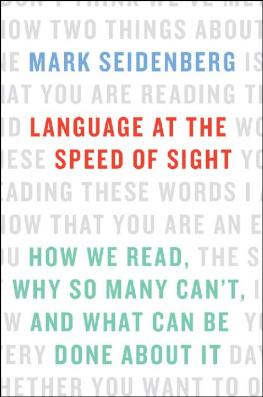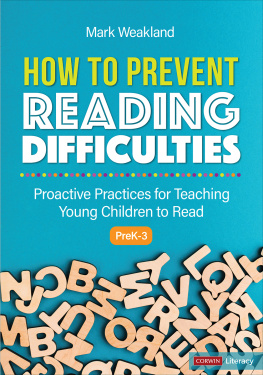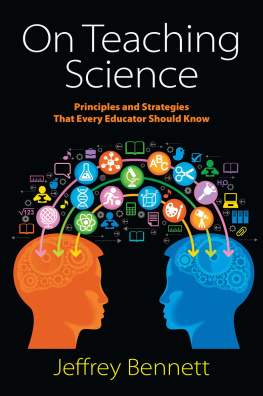

Copyright 2017 by Mark Seidenberg
Published in the United States by Basic Books, an imprint of Perseus Books, a division of PBG Publishing, LLC, a subsidiary of Hachette Book Group, Inc.
All rights reserved. Printed in the United States of America. No part of this book may be reproduced in any manner whatsoever without written permission except in the case of brief quotations embodied in critical articles and reviews. For information, contact Basic Books, 250 West 57th Street, 15th floor, New York, NY 10107.
Books published by Basic Books are available at special discounts for bulk purchases in the United States by corporations, institutions, and other organizations. For more information, please contact the Special Markets Department at Perseus Books, 2300 Chestnut Street, Suite 200, Philadelphia, PA 19103, or call (800) 810-4145, ext. 5000, or e-mail .
Text design by Jeff Williams
Library of Congress Cataloging-in-Publication Data
Names: Seidenberg, Mark S., author.
Title: Language at the speed of sight: how we read, why so many can't, and what can be done about it / Mark Seidenberg.
Description: New York: Basic Books, an imprint of Perseus Books, a division of PBG Publishing, LLC, a subsidiary of Hachette Book Group, Inc., [2017]
| Includes bibliographical references and index.
Identifiers: LCCN 2016046731 | ISBN 9780465080656 (ebook)
Subjects: LCSH: Reading (Higher education) | Language experience approach in education. | Cognition disorders. | Psycholinguistics.
Classification: LCC LB2395.3 .S44 2016 | DDC 428.4071/1dc23 LC record available at https://lccn.loc.gov/2016046731
10 9 8 7 6 5 4 3 2 1
For Maryellen
With deepest [love, admiration, and gratitude].
For Claudia and Ethan
Fun. Food. Family.
And for showing me what I didnt know about
reading, and the rest.
Look closely at the letters. Can you see,
entering (stage right), then floating full,
then heading offso soon
how like a little kohl-rimmed moon
o plots her course from b to d
as y, unanswered, knocks at the stage door?
Looked at too long, words fail,
phase out. Ask, now that body shines
no longer, by what light you learn these lines
and what the b and d stood for.
b o d y
JAMES MERRILL
CONTENTS

I DONT THINK WEVE MET, but I know two things about you. One is that you are reading these words. And because youre reading these words, I also know that you are an expert at what this book is about. Which is reading.
A friend once gave me a scholarly 380-page book about the history of the pencil. I like pencils. Im good at using them. I like a fresh pink eraser tip. I just do not need to read about how they got that way. Perhaps reading is for you like the history of pencils is for me. Why read about reading?
Reading is one of the few activities you do every day whether you want to or not. Street signs, menus, e-mails, Facebook posts, novels, ingredients in Chex Mix. You read for work, for school, for pleasure; because you have to, because you want to, because you cant help it. That is a lot of practice over a long period. If it takes thousands of hours to become an expert at something like chess, we readers are in grandmaster territory.
One result is that everyone has an opinion about how they read. When you are introduced at the dinner table as someone who studies reading for a living, you hear all the stories. People tell me whether they read word by word or in big chunks. Whether they read visually or hear the sounds of words in their heads while they read. How they learned to read and how their kids learned. Many confessions from people who say they are slow readers, more often than not from accomplished people in fields that seemingly demand a high level of reading competencelawyers or school superintendents, say. Most of you think that other people read faster than you. Its the opposite of Lake Wobegon: reading is the land where the folk are all below average.
But heres the rub: people manage to be good at reading without knowing much about how they do it. Most of what goes on in reading is subconscious: we are aware of the result of having read somethingthat we understood it, that we found it funny, that it conveyed a fact, idea, or feelingnot the mental and neural operations that produced that outcome. People are unreliable narrators of their own cognitive lives. Trying to understand reading by observing our own reading is hopeless, like trying to understand how a television works by watching Game of Thrones. Being an expert reader doesnt make you an expert about reading. That is why there is a science of reading: to understand this complex skill at levels that intuition cannot easily penetrate.
I am a psychologist/psycholinguist/cognitive neuroscientist who has been studying reading since the disco era. Im not alone: a huge community of scientists studies reading around the world. Many people are surprised to learn there is a science of reading. Really, what is there to study? Words on page; eyes scan words; words are comprehended. Its just like listening, only visual. Book ends here. Beneath this seemingly simple behavior, however, a vast, coordinated network of activities is occurring. A snapshot of a persons brain activity while reading shows that most of the brain is involved: areas involved in vision and language, of course, but also neural systems that control action, emotion, and decision making; several memory systems; and much of the rest. Forget the myth that people only use 10 percent of their brains: we use more than that merely reading. The relationship between the experience of reading and its underlying neurocognitive mechanisms is about as opaque as the relationship between behavior and its psychodynamic causes in Freudian theory. Fortunately we have better methods than Freud for exploring the subconscious basis of behavior. Well have you lie down and talk to us, but in the barrel of a magnetic resonance imaging machine, not on a couch.
Weve learned quite a lot actually.
We understand the basic mechanisms that support skilled reading, how reading skill is acquired, and the main causes of reading impairments.
We know which behaviors of three- and four-year-olds predict later reading ability.
We know how children become readers during the first years of schooling and the obstacles that many encounter.
We know what distinguishes good from poor readers, younger from older skilled readers, and typical readers from those who are atypical because of constitutional factors (such as a hearing or learning impairment) or environmental ones (such as inadequate instruction or poverty).
We understand what is universal about reading (things that all readers do the same way because their brains are essentially alike) and what is not (because writing systems differ).
We have identified the main neural circuits involved in reading and some of the anomalous ways they develop in children with reading impairments.
We even have computational models of learning to read, skilled reading, dyslexic reading, and the loss of reading ability due to brain injury. It takes a deep understanding of these phenomena to develop models that reproduce them.
Next page









